
Lazy ways to deal with emotional eating
Let’s start with this...
Emotional eating is only a problem when you abuse it;
feelings go straight to eating, with no interpretation.
- Ellyn Satter
THE EMOTIONAL EATING CYCLE
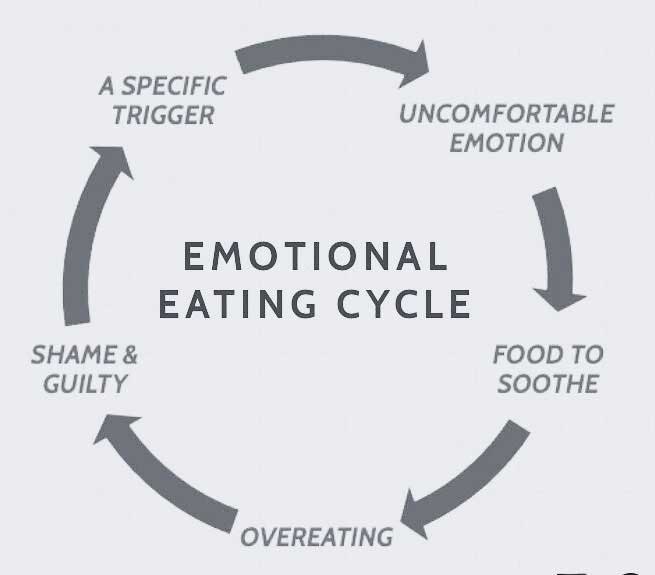
WHY DO WE EAT IN RESPONSE TO EMOTIONS?
- We are conditioned to “eat our feelings.”
- Food is easy, accessible and fun.
- We don’t know how else to cope.
- Stress can increase appetite and cravings.
- Certain foods do make us feel better.
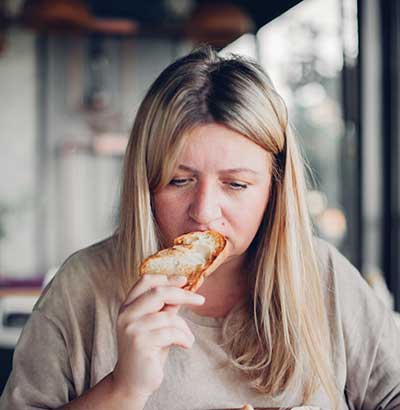

WHAT EMOTIONS CAN TRIGGER EATING?
- stress, anxiety
- boredom, procrastination
- bribery, reward, celebration
- soothing, comfort
- frustration, anger, rage
- love, connection
- excitement
- release
WHAT TO DO BEFORE IT HAPPENS
- Focus on basic self-care.
- Avoid overly restrictive diets.
- Learn to recognize physical hunger.
- Be strategic about the foods you keep around.
- Plan for non-food ways to distract and/or soothe yourself.
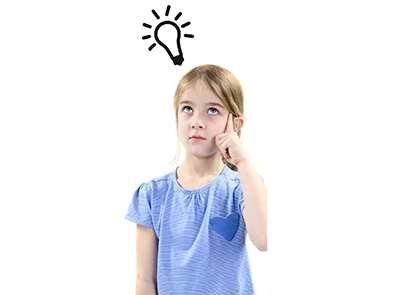
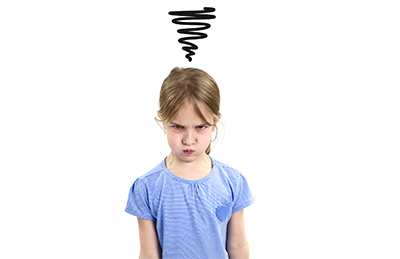
WHAT TO DO WHEN IT HAPPENS
- Delay. Distract. Decide.
- Delay making a decision.
- Distract yourself with a non-food activity.
- Decide what you will do.
- Ask yourself:
- Am I physically hungry?
- What am I feeling?
- What do I need?
AM I HUNGRY?
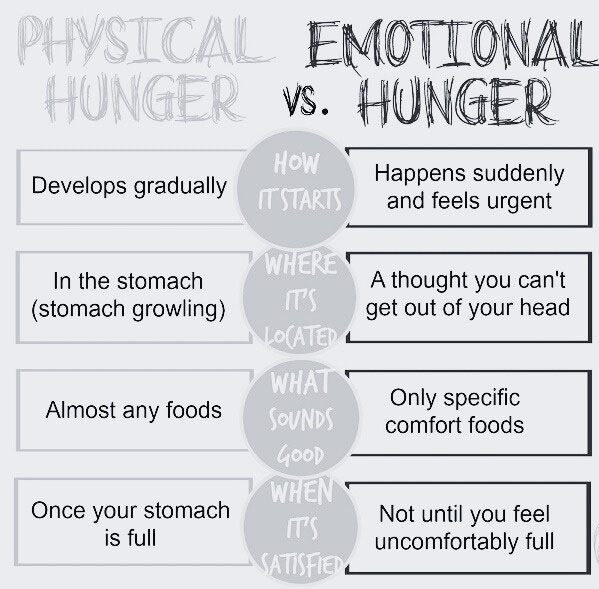
WHAT AM I FEELING?
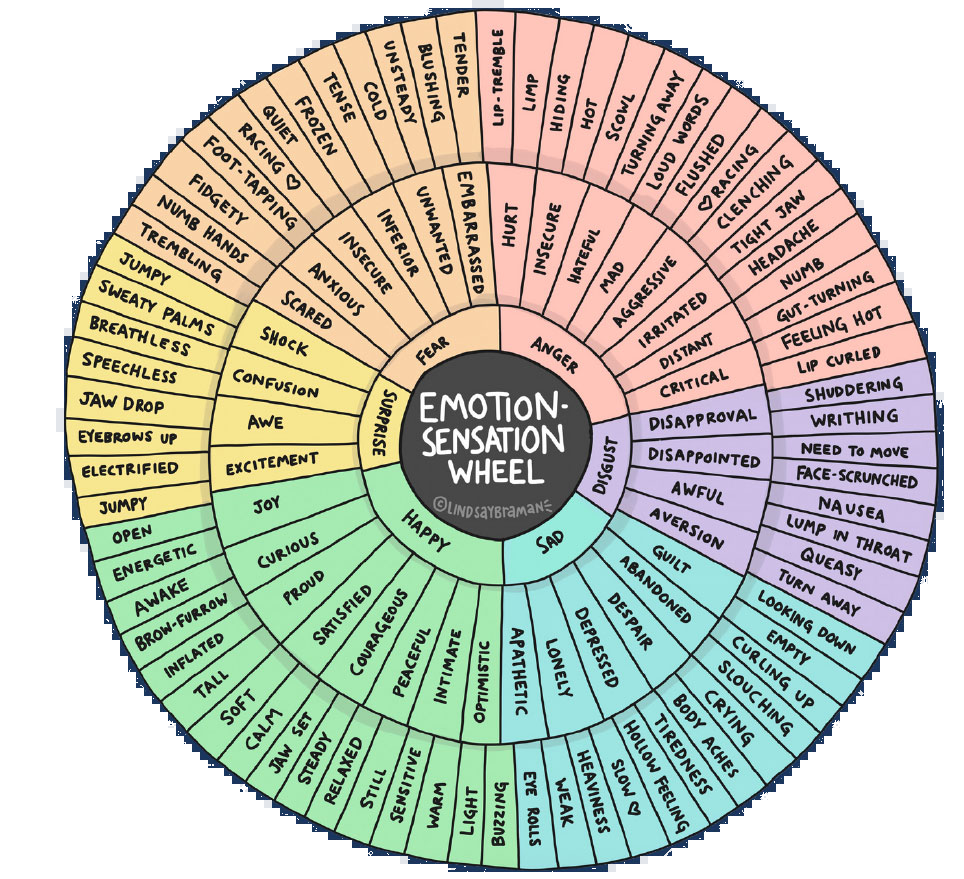
WHAT DO I NEED?
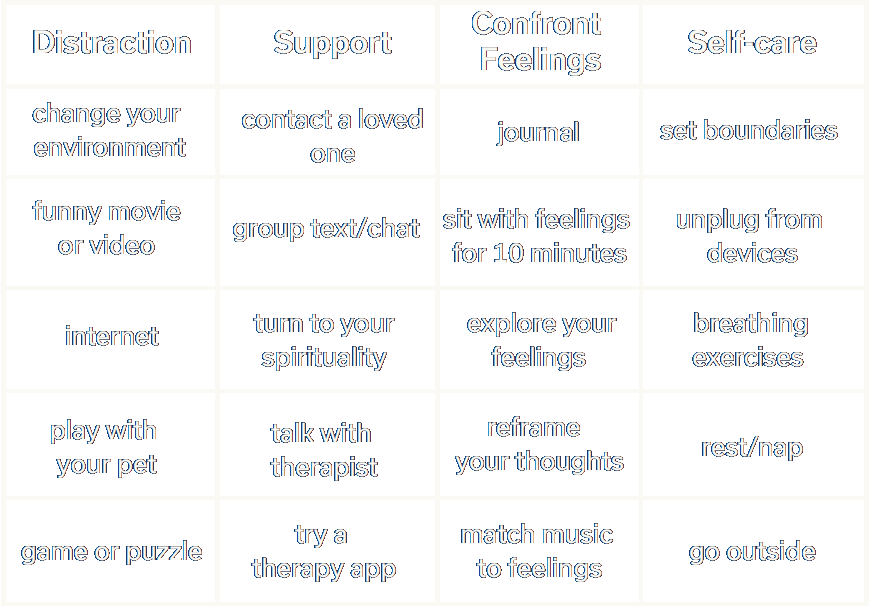
WHAT TO DO AFTER IT HAPPENS
- Respond with self-compassion.
- Use it as a learning opportunity, then let it go.
- Appreciate the gift of emotional eating -
- it can shine a light on what needs our attention.

